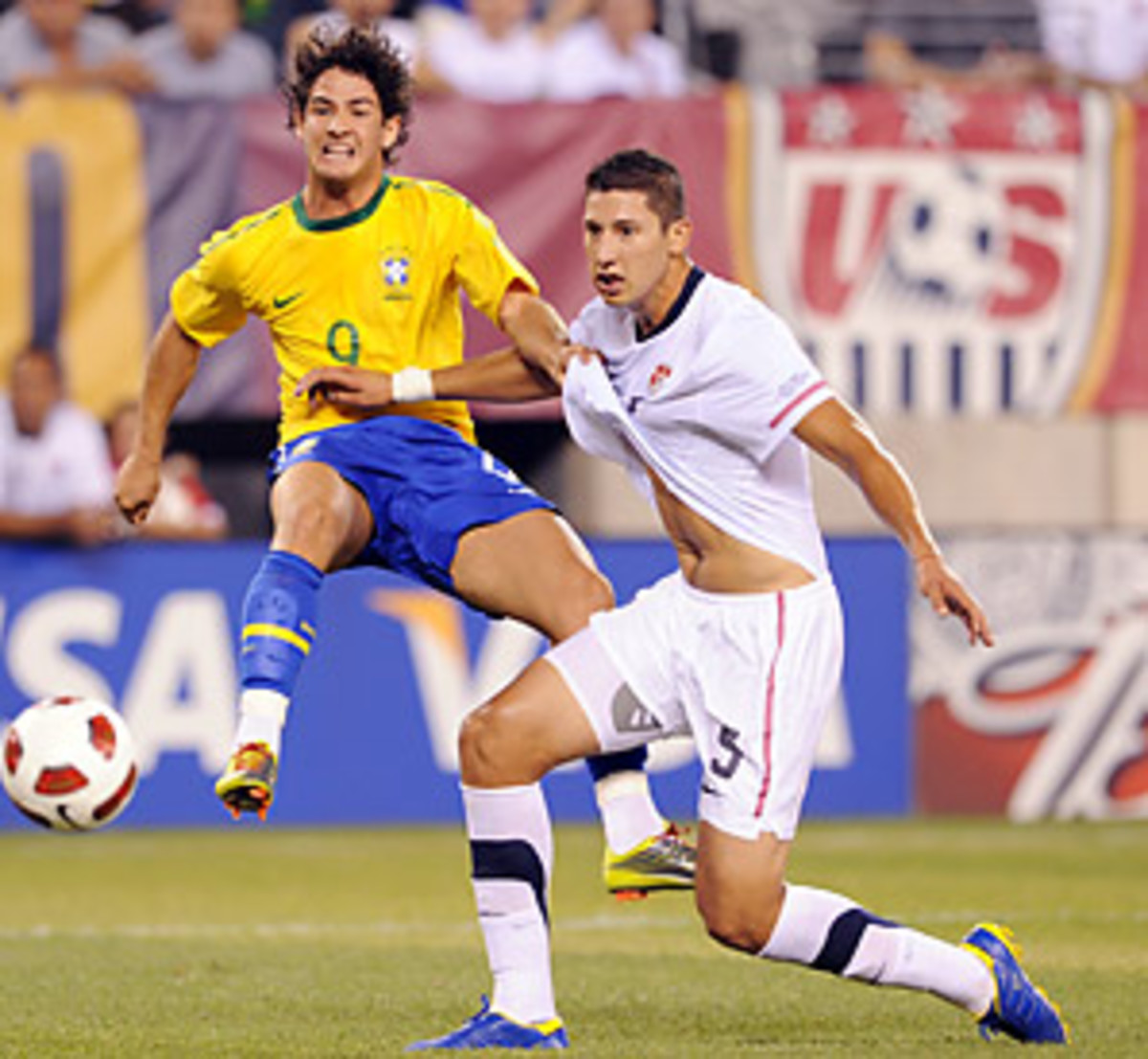U.S. coach Bradley misses chance to give experience to fresh talent
It is important whenever judging Bob Bradley to remember how he became coach of the U.S. men's national team.
In December 2006, after the U.S. Soccer Federation (USSF) whiffed on its attempt to hire Jurgen Klinsmann, Bradley was tabbed as interim coach. One got the sense that the federation was still trolling for candidates, that it was only a matter of time before a big-name coach like Jose Pekerman or Carlos Queiroz was hired and Bradley was cast aside.
The USSF gave Bradley the helm for a series of friendlies early in 2007, and he used those games to make his case. Exhibitions early in a World Cup cycle are opportunities to try new players and formations, to deepen the talent pool. Bradley coached those games to win, to make his temporary gig a permanent one, and he relied mostly on veterans and players he coached in MLS.
The U.S. went 3-0-1, defeating Denmark, Mexico and Ecuador, and that got Bradley the job for good. It also set a theme for the entire cycle: Focus on the short term at the expense of the long view.
If Tuesday's game against Brazil at the New Meadowlands Stadium in New Jersey was Bradley's last as U.S. coach, it was a fitting way for him to go out. As Brazil fielded a team of young, mostly unproven players with the national team -- a true "B" squad -- Bradley sent out a group comprised primarily of World Cup veterans, something like an "A-" team. He did start Omar Gonzalez and Alejandro Bedoya, the former getting his first cap and the latter his fourth, but the remaining nine starters and the six players he brought off the bench were all part of the team in South Africa and their qualities or lack thereof were well known.
In short, Bradley went for the win once again.
Maybe he did so for his own gain, to pressure USSF president Sunil Gulati into giving him a new contract or to up his price with an MLS team (D.C. United?). Maybe he did it to appease the federation suits hoping to capitalize on post-World Cup buzz and enrich the coffers. Maybe the motivation lay elsewhere.
Whatever the reason, it was shortsighted.
Forget that the U.S. lost 2-0 (and it easily could have been 6-0). The greater loss was the opportunity missed to give more unproven Americans a look in a high-profile game against a talented foe.
Tuesday's game provided some new information on Gonzalez and Bedoya but what else did we learn? That fullback Jonathan Bornstein loses his mark far too often; that Robbie Findley offers little beyond his speed; that Sacha Kljestan turns the ball over when pressured. Who didn't know that already? Brazil learned a lot about its talent pool; the U.S. learned almost nothing.
What should Bradley have done? Start with a midfield pairing that didn't include his son, Michael, who looked tired after a long summer. That is not to say that Michael Bradley isn't a starter, but in this game there was no reason for him to be out there. Perhaps Bob Bradley could have used the game to entice a young player with dual citizenship, such as Michael Hoyos, who currently plays in Argentina and is on the radar of that country's federation. At the least, he could have run out more young defenders than just Gonzalez, such as Tim Ream of the Red Bulls and U-20 standout Gale Agbossoumonde.
Given how Bradley got the job nearly four years ago, and considering U.S. Soccer's indecisiveness about the direction it wants to go in this cycle, you can't blame him for putting his best foot forward Tuesday and in every game. He started out as a coach who had to prove himself 90 minutes at a time and that remains his approach.
But that is not what the U.S. needs right now. The back line is aging, strikers need to be found, the right combination in the midfield continues to be a mystery. It is time to be open to all possibilities, to take risks, to not only bring in new talent but also try established players at new positions. If that results in a loss in every friendly between now and next summer's Gold Cup, that is fine.
That approach goes against Bradley's nature. He is, simply, not a risk-taker. At times, that can be a positive. He knows the weaknesses of his squad and does a fine job positioning the U.S. not to lose. His knowledge of the game is immense. But at this moment the U.S. would be better served with a coach more willing to stir the pot, someone who will gaze further into the future than Bob Bradley has been allowed or willing to look.






